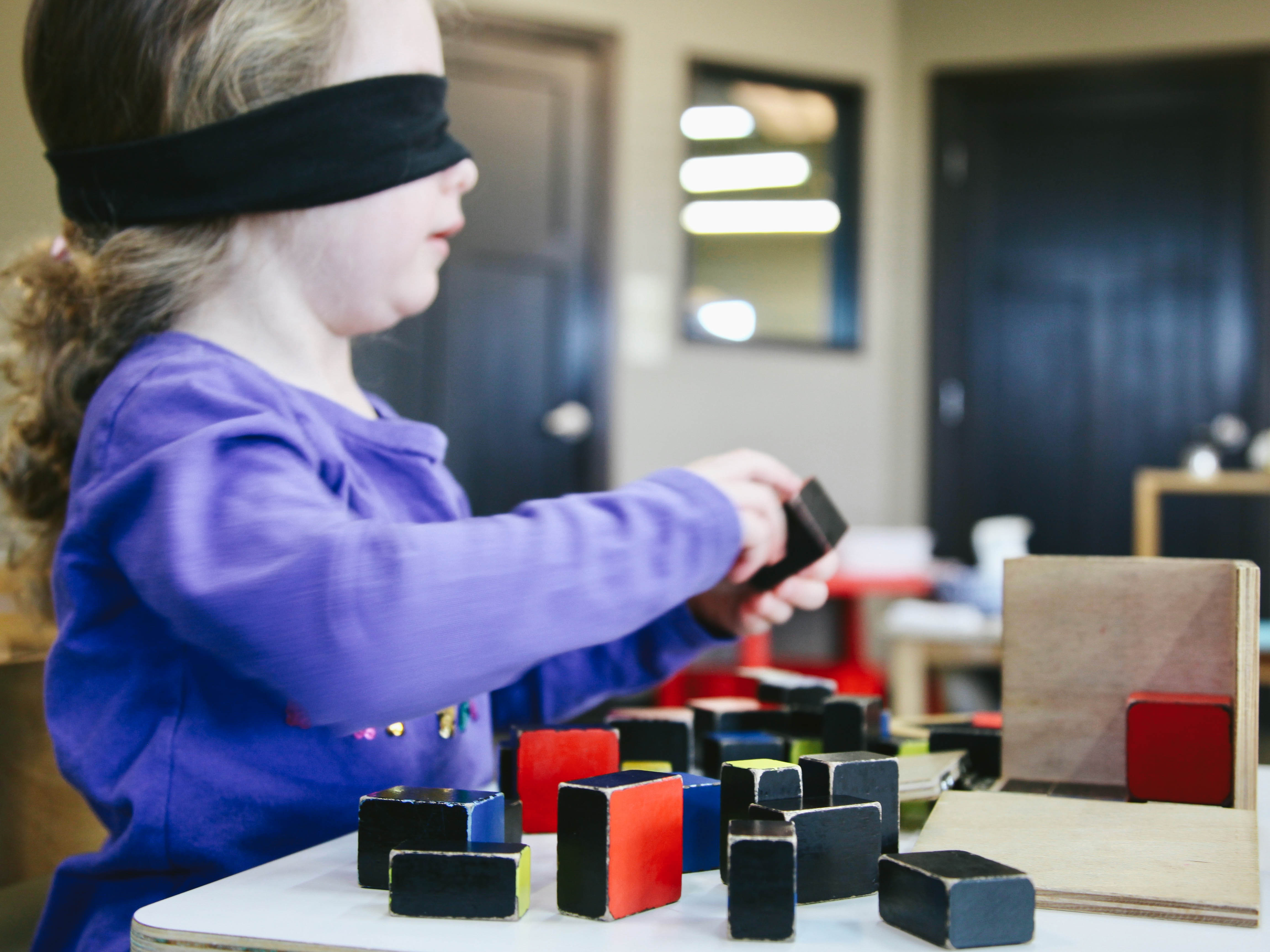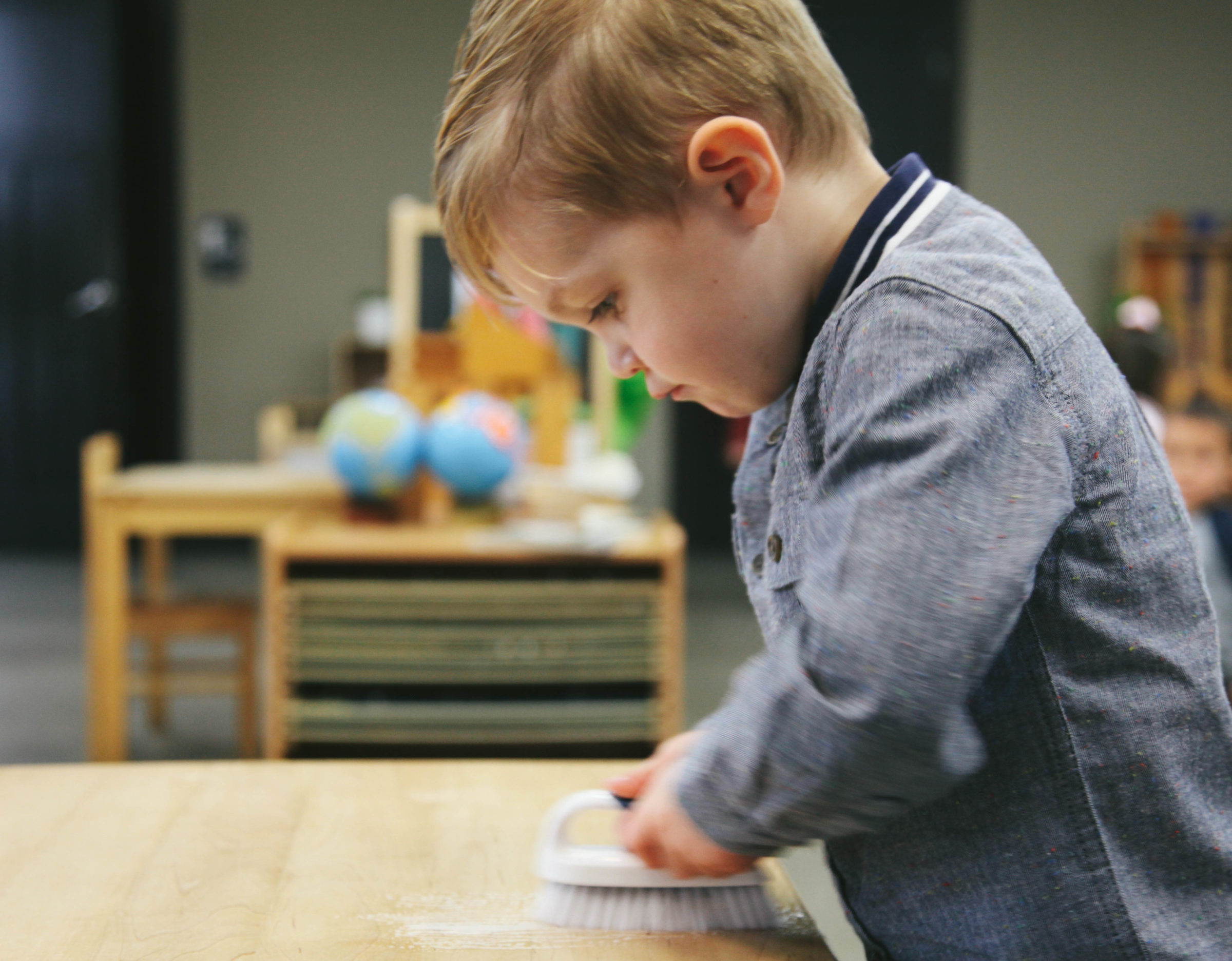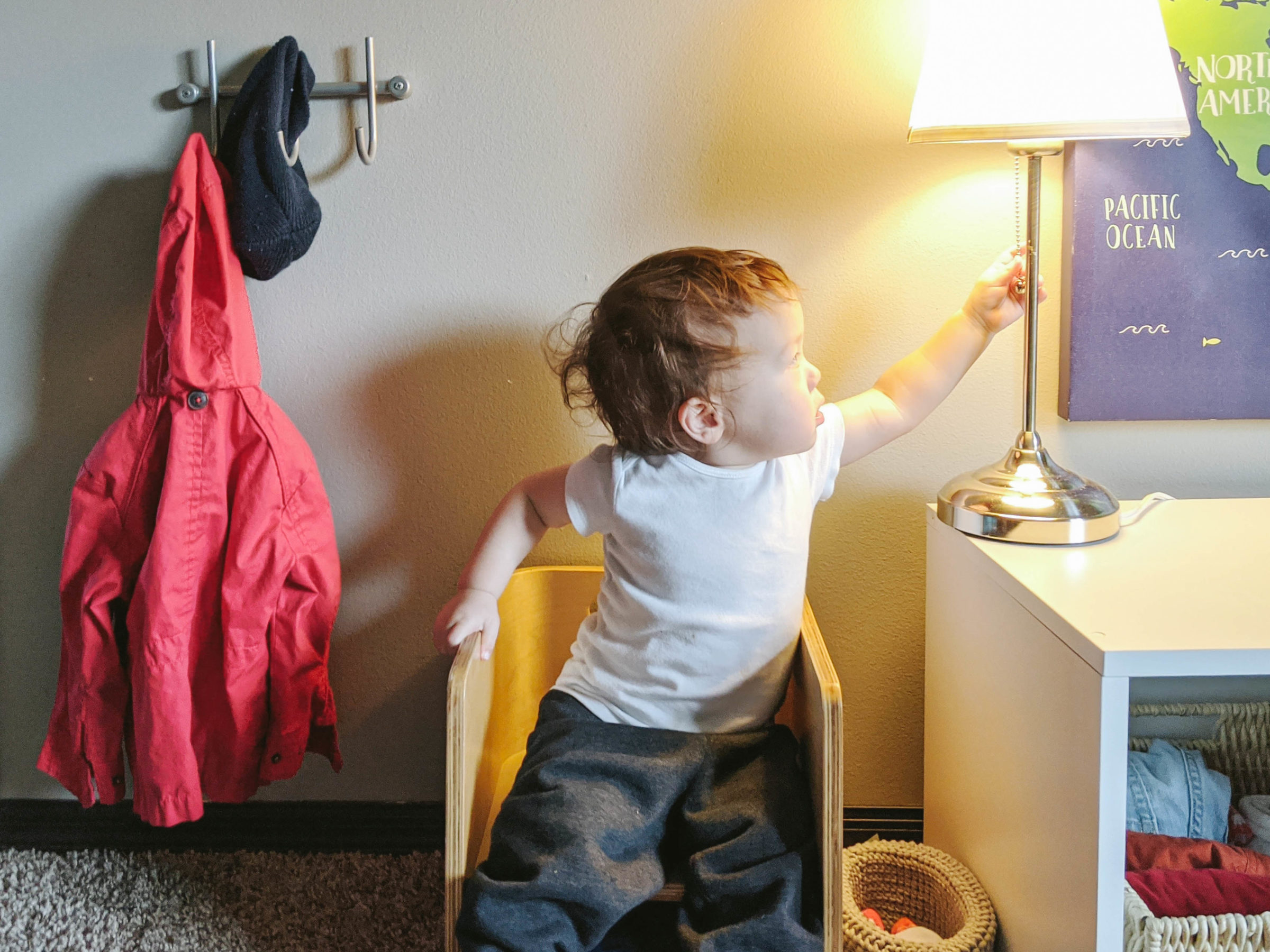Learning Takes Courage
Thoughts & Reflections
Oh wow. She took out the Trinomial Cube (a 27-piece cube puzzle that is a challenge for adults but a fun and challenging work for children in the Montessori Children’s House) AND a blindfold. Woah.
She tried, her hands hovering over the pieces. Then, adjusted her blindfold, and began to easily and quickly return each piece to its home.
Wait a second. She’s not bumping any of the pieces. She’s not feeling them in the way she would if she really couldn’t see them. She’s peeking!
Yes, but that doesn’t make this any less incredible.
Learning is hard. Learning takes courage. Real learning happens outside our comfort zone. It happens when we swim in deeper water than we can touch. When we stand on wobbly legs walking toward — though not holding onto — hands. When we try something where there’s a real chance we could fail.
Most of us would rather avoid failure. Even those of us who love the learning that making mistakes brings, don’t really enjoy that “well that didn’t work” feeling.
“Most of us would rather avoid failure.”
We need to feel safe to be willing to fail, to know there are hands outstretched eager to catch us, a cheering section who’s got our back, friends to say “yeah that sucked but you got this,” someone, anyone, our own selves, who brush us off, rub some dirt in it, and send us out again.
We all also have different levels of tolerance for this kind of courage. Take learning to swim. Some of us take a deep breath and jump in. Others observe while sitting on a step, creeping in over the course of an hour. Maybe you like to hear about swimming first, or would like a lesson on the mechanics of swimming. Perhaps you saw the Olympics and want to emulate those water polo players or the elegant divers, or maybe you’re more one for a rousing game of Marco Polo. We’re all a bit different, and being able to approach a new learning experience on our own terms inspires confidence in our abilities.
The way this child wore the blindfold but wasn’t exactly using the blindfold is similar to training wheels. Maybe she could, maybe she couldn’t. The point is, she was trying. This level of courage is just right for her. There is no failing. The peeking, asking a friend, putting the work back on the shelf, simply trying, they’re all respectful of our own levels of courage. There is no better for actually using the blindfold, there’s no failure in peeking, to disagree with Yoda, the very best is to try.
It’s why we focus so much on establishing a trusting relationship with children prior to asking them to do something new with us. It’s why you can try and solve a problem yourself or you can ask a friend. It’s why the Thinking Chair and observation are valid work choices. Your abilities and your learning grow in tandem with your confidence. How can I build one if I don’t tend to the other?
Written by:
Charlotte Snyder



